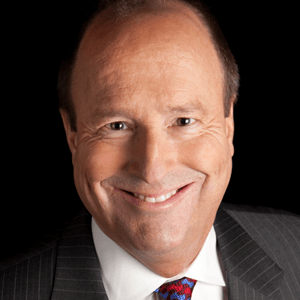Nearly two million graduating college students across the country will be clutching their degrees and entering the workforce this summer. But an estimated two out of three will start out with the looming hardship of paying off student debt as they launch their post-college lives, per a recent Institute for College Access & Success study.
So while they may have immersed themselves in computer engineering, business and political science, few have earned even a single credit on what is likely their most immediate and toughest test: their financial burdens.
This issue has come to the forefront in the presidential election as voters and candidates call on the private and public sectors to better manage student debt and find solutions to financially empower and strengthen the next generation. April was also Financial Literacy Month, a reminder that we need to arm people – especially our young people just starting out, and those living paycheck to paycheck – with resources and knowledge to set them up for financial success.
It’s critical that the public, private and nonprofit sectors join forces in this endeavor. Here in the Portland-Vancouver area, we’re fortunate to have a several nonprofit organizations doing excellent work in this arena, including Financial Beginnings.
Through our efforts to help improve peoples’ financial lives, Bank of America is partnering with local organizations like Junior Achievement, Innovative Changes, Financial Beginnings and CASH Oregon to help increase financial literacy. Nationally, we have also partnered with the online educator Sal Khan and Khan Academy to build BetterMoneyHabits.com, which takes Sal’s distinctive approach to simplifying intimidating topics and applies it to topics critical for this generation to understand, such as how to manage student debt. In fact, Financial Beginnings uses this Better Money Habits curriculum, which has been very well-received locally.
Clearly, millennials are far from the only group in America facing financial challenges or struggling to make ends meet. We have also dedicated time to interview our nonprofit partners locally, to get a clear sense of what their clients’ greatest financial challenges are and what hurdles they face in trying to take action. We also wanted to know how people best absorb information, so that together, we can customize accordingly.
Financial Beginnings works with college students, low-income individuals, and underserved populations and shares that many of these individuals often fail to seek help until they are already facing a crisis. With many of their participants living paycheck to paycheck or working long hours as single-parents, a financial crisis can be truly devastating, particularly when there is no financial safety net such as emergency savings or open credit.
Financial Beginnings has been providing financial education for over a decade. This has led to keen insight into the most effective ways to make financial education impactful:
- Participants learn best by doing, through hands-on activities and exercises.
- They want information that is credible and relevant to their immediate financial situation.
- Most importantly, they want information they can trust, preferably delivered by nonprofits and community organizations.
Particularly on the heels of Financial Literacy Month, it’s important to reminder that this issue will remain one of the most critical for the next generation, and so we all ought to be doing our part to think about how we as public and private sector leaders can work together on the issues at hand.
Roger Hinshaw is the market president for Bank of America in Oregon and Southwest Washington, and Melody Bell is the executive director of Financial Beginnings, a leading nonprofit organization in the Pacific Northwest that delivers financial literacy.


